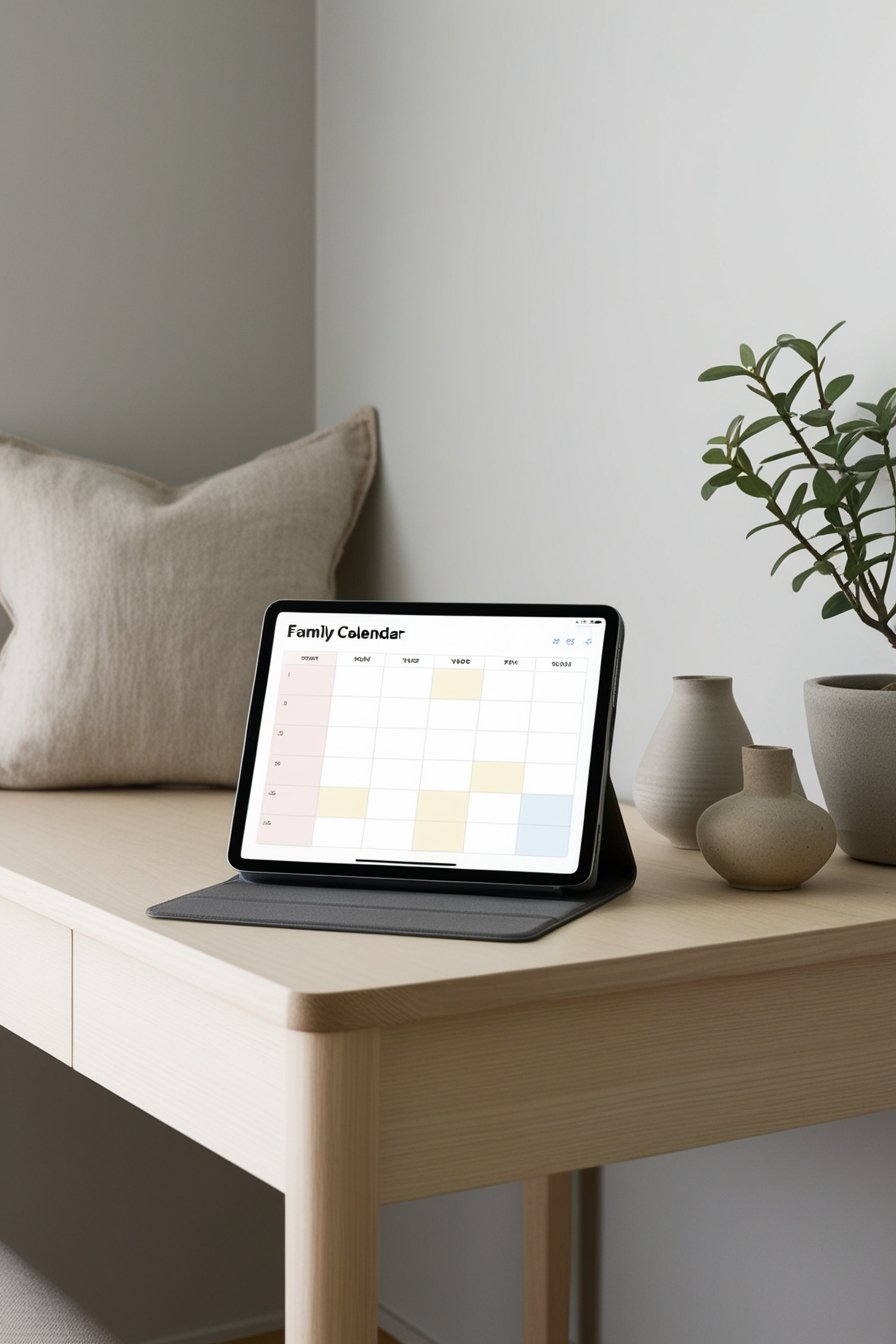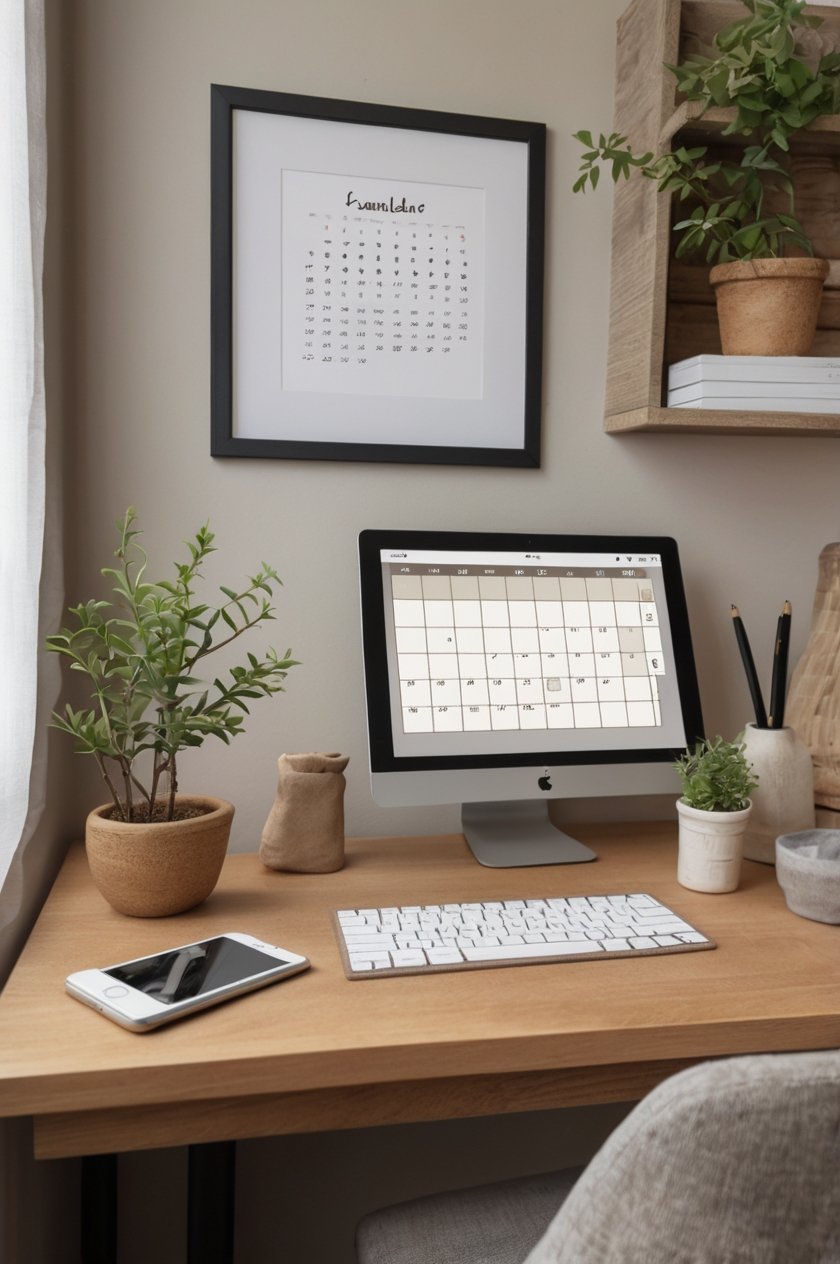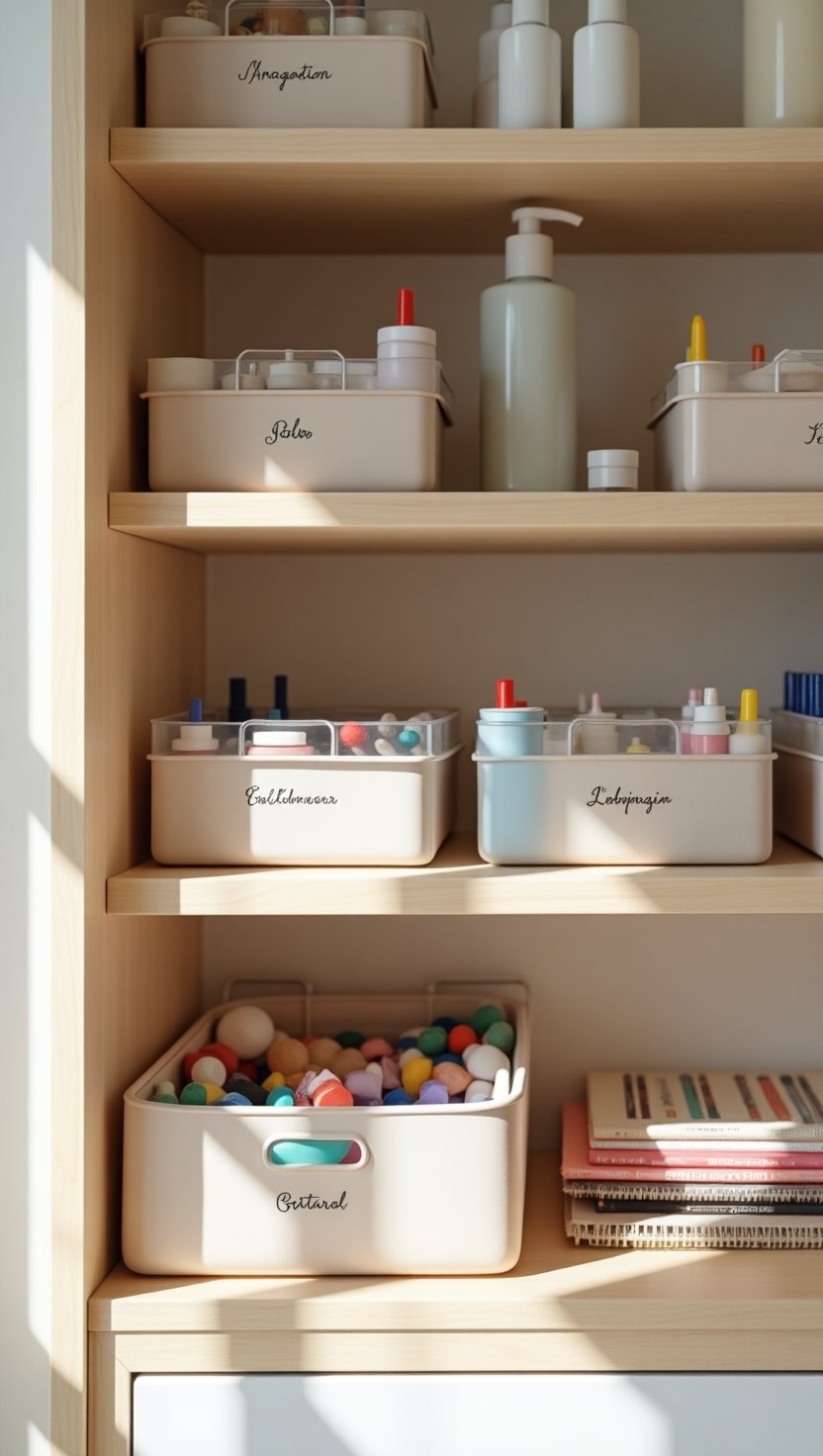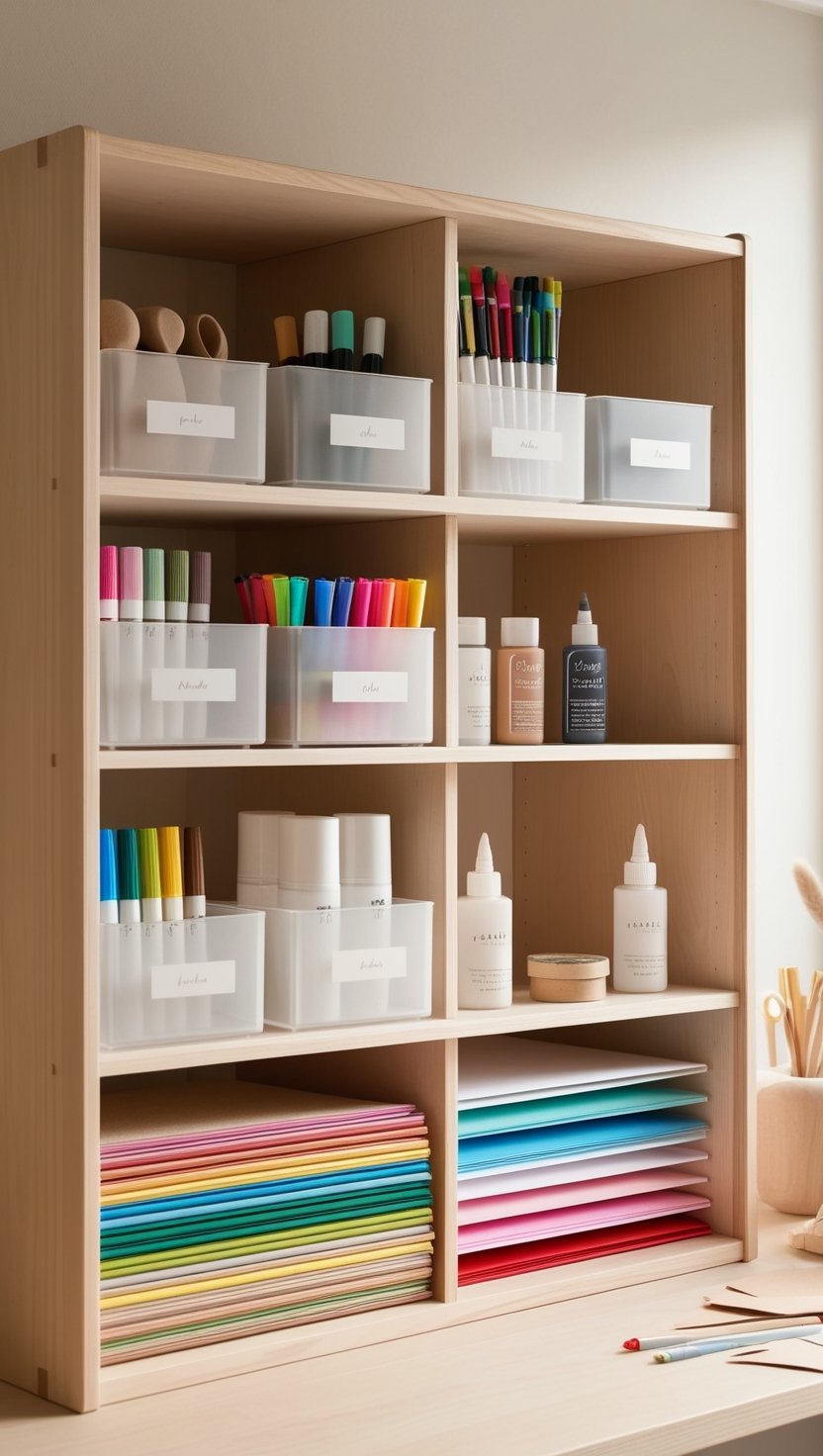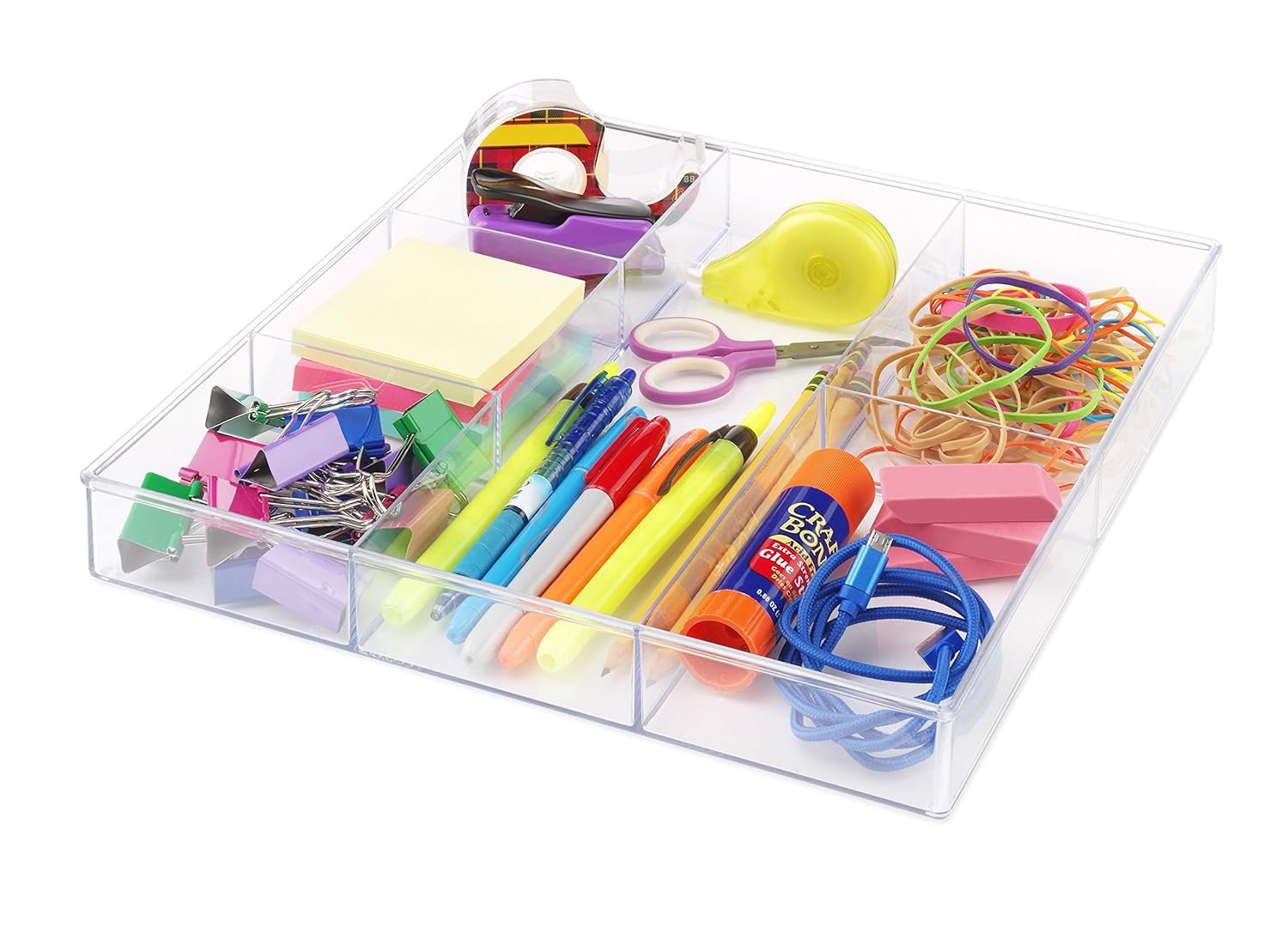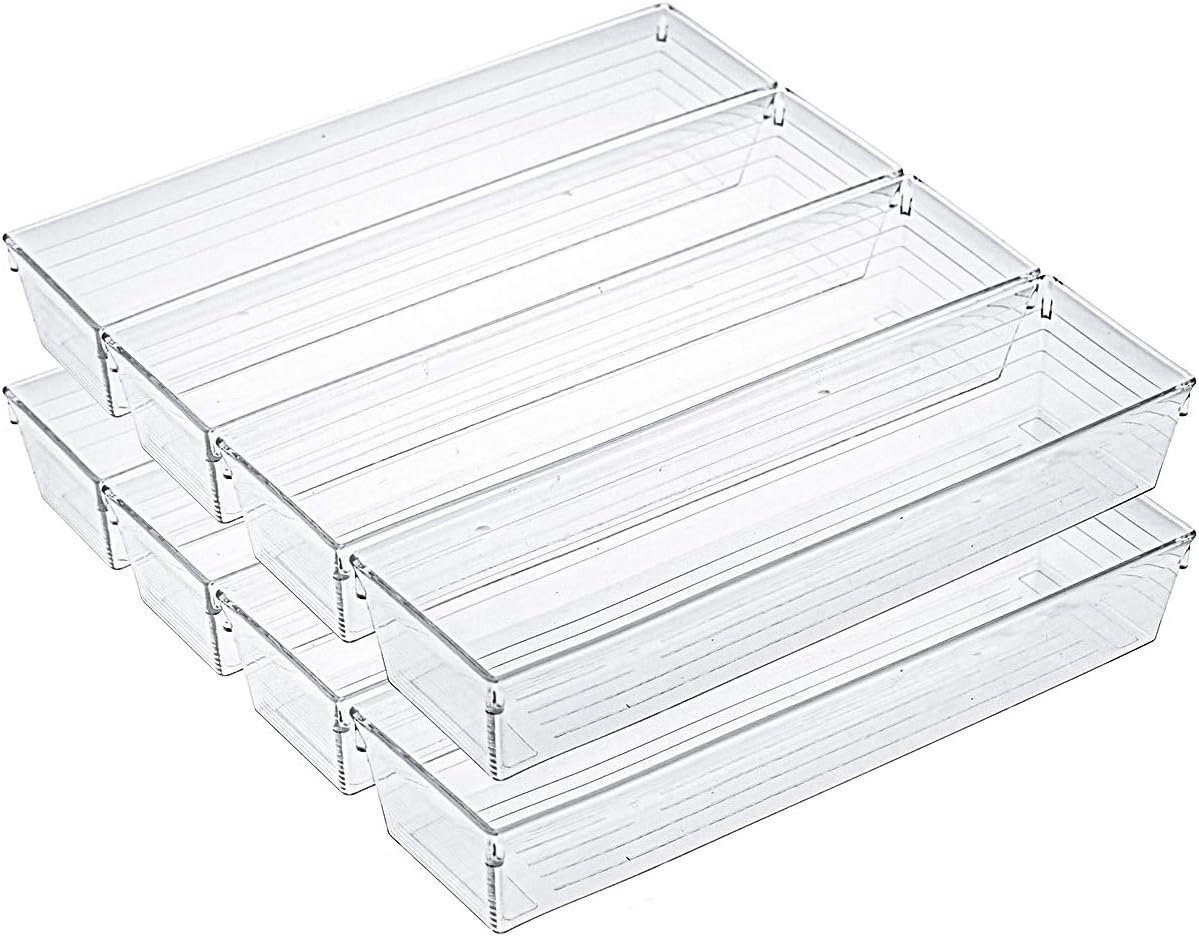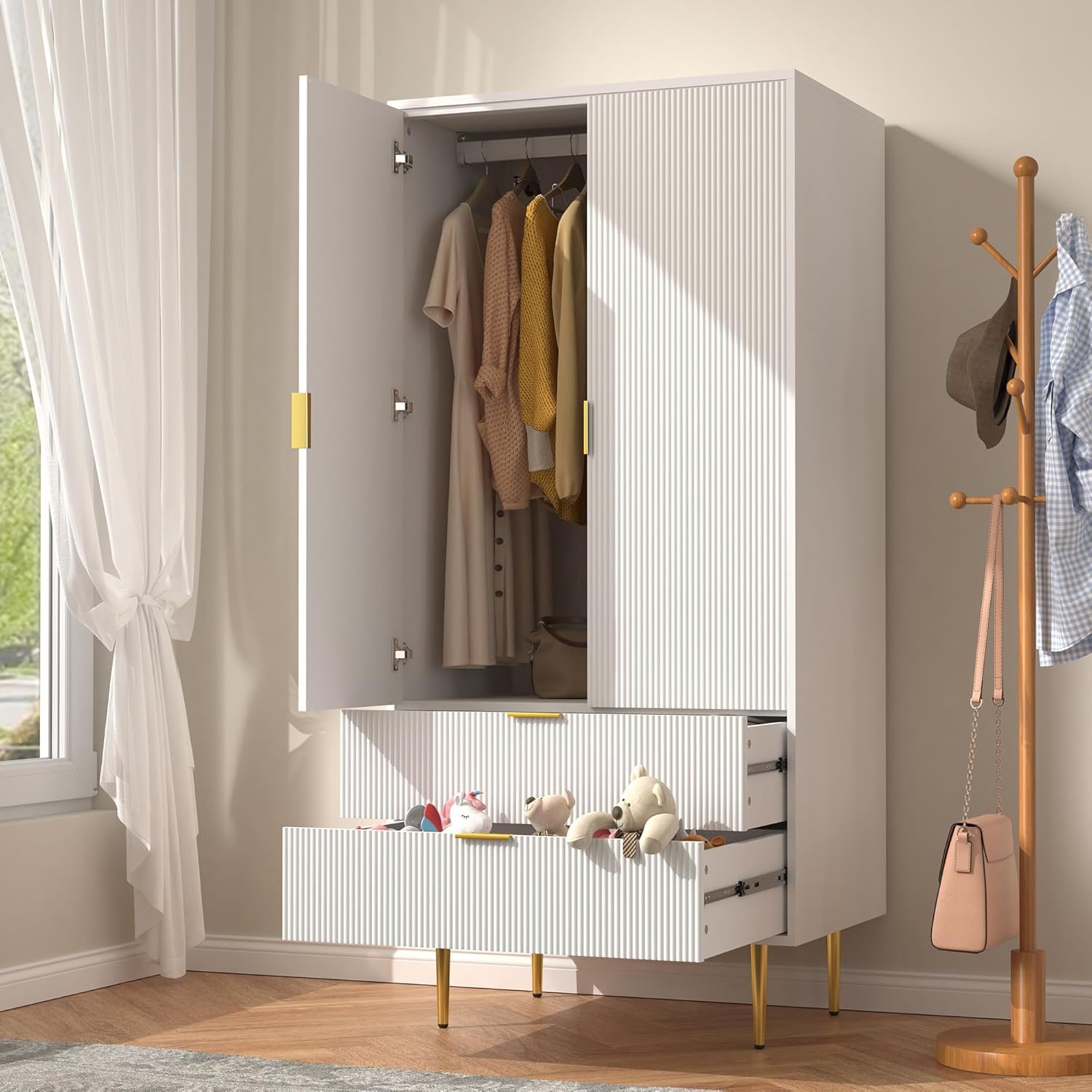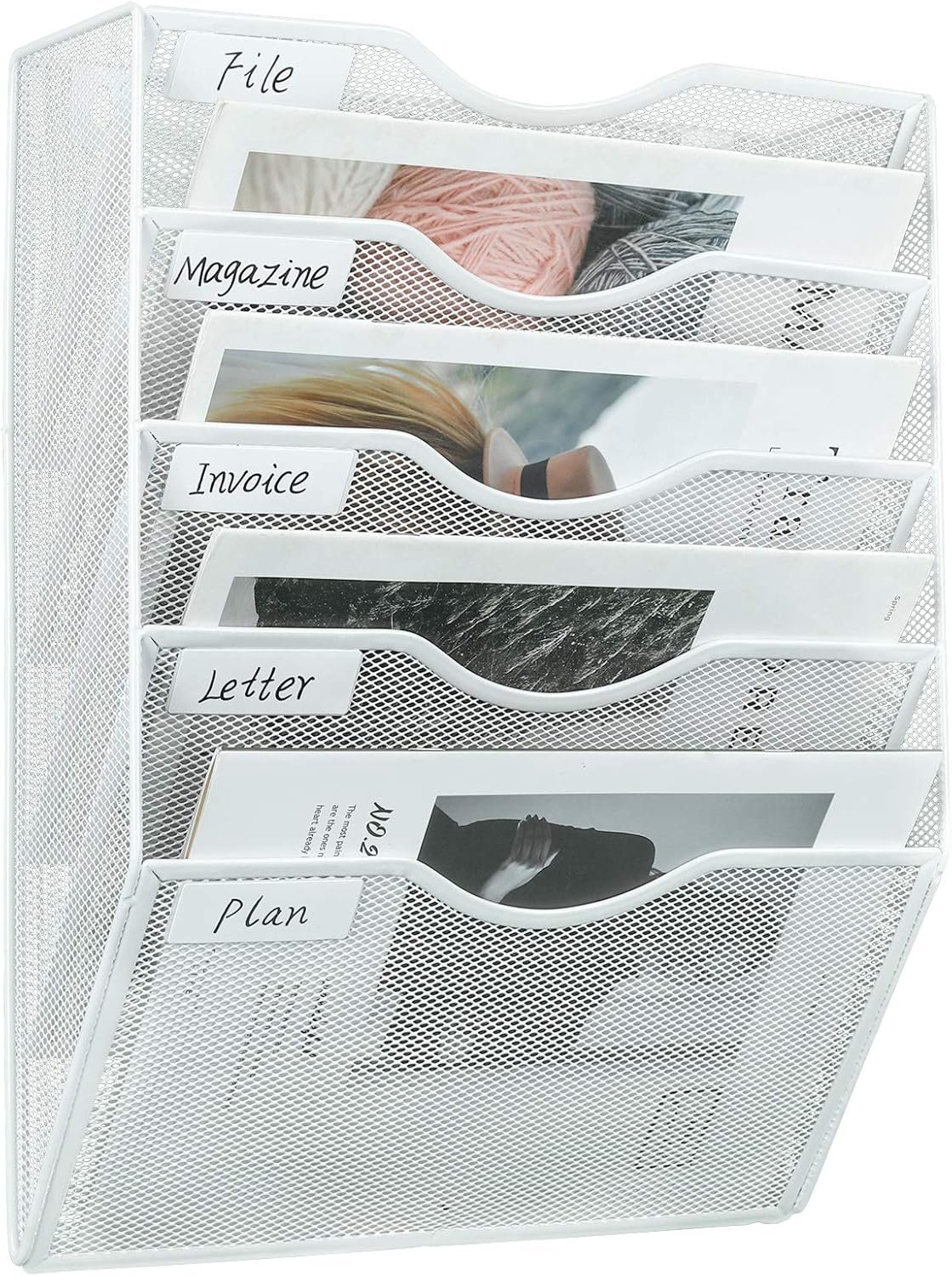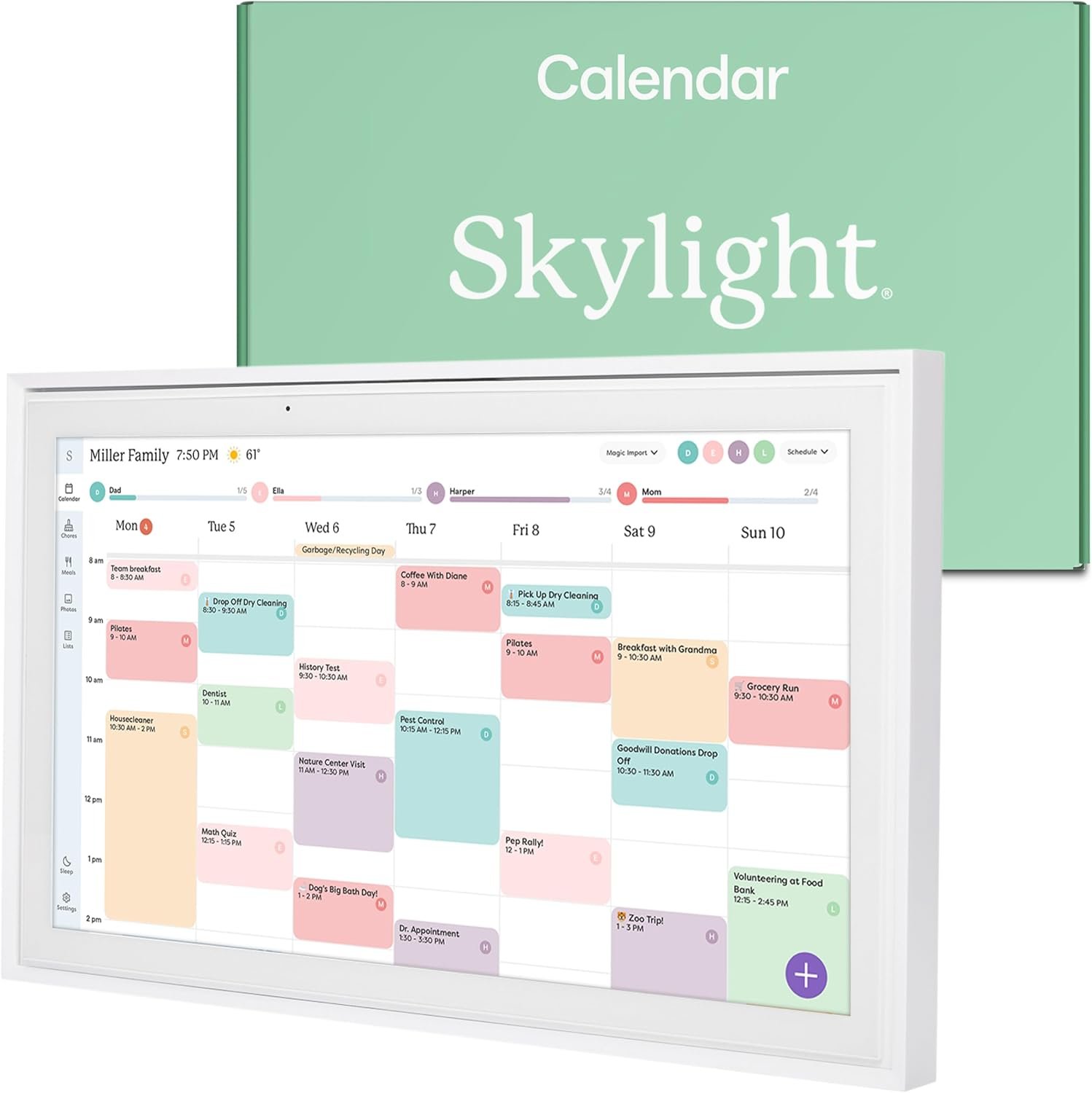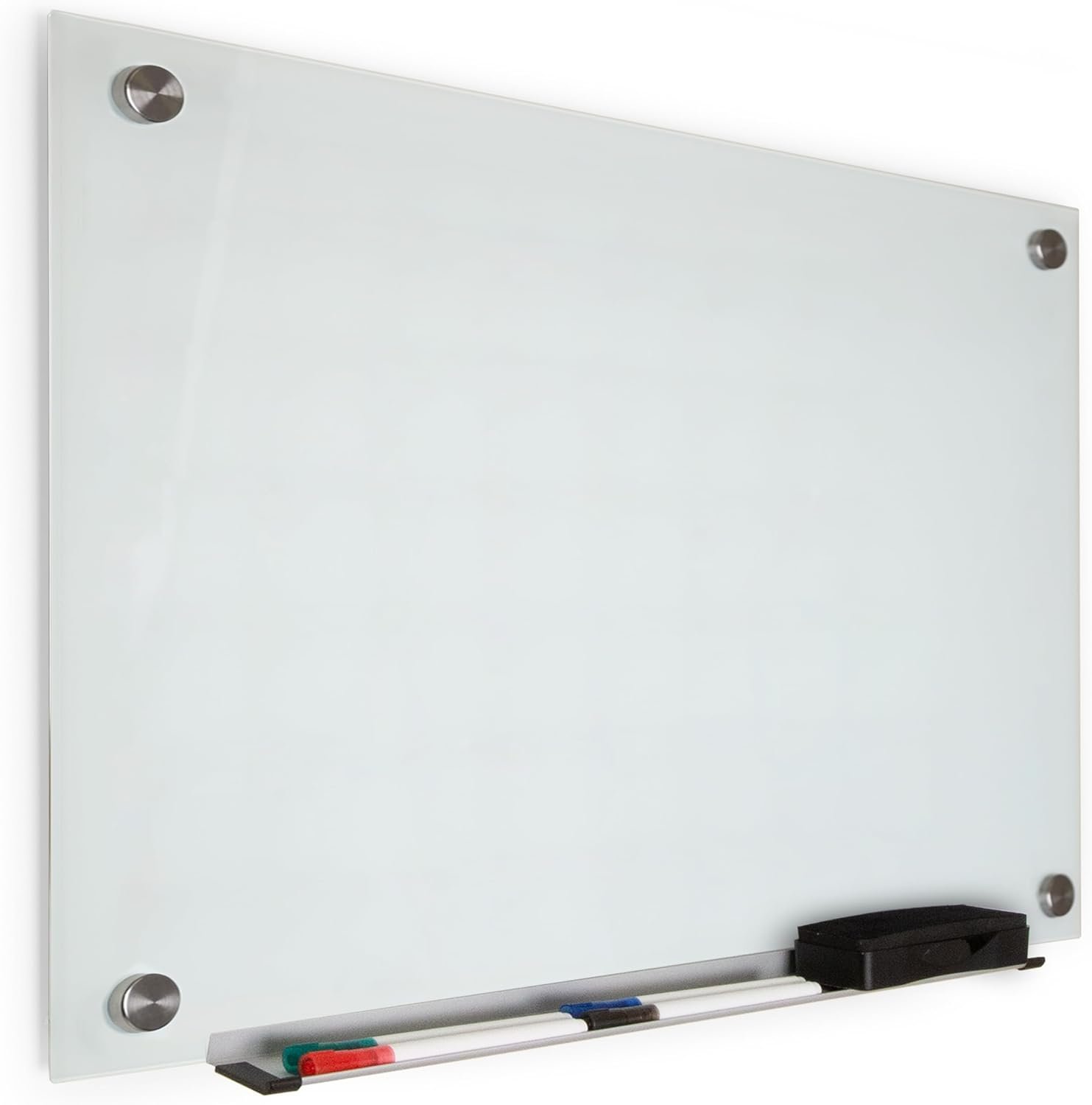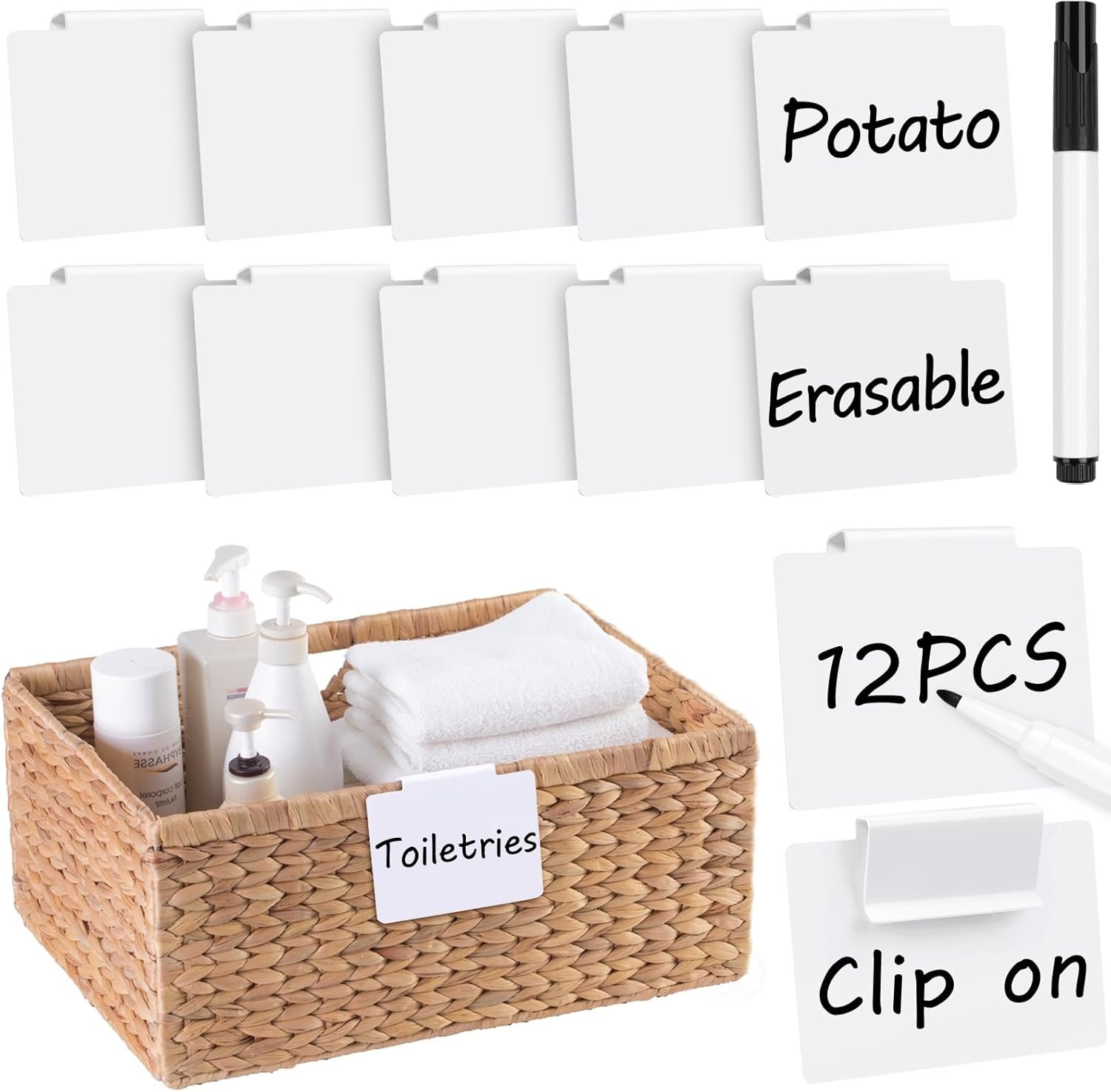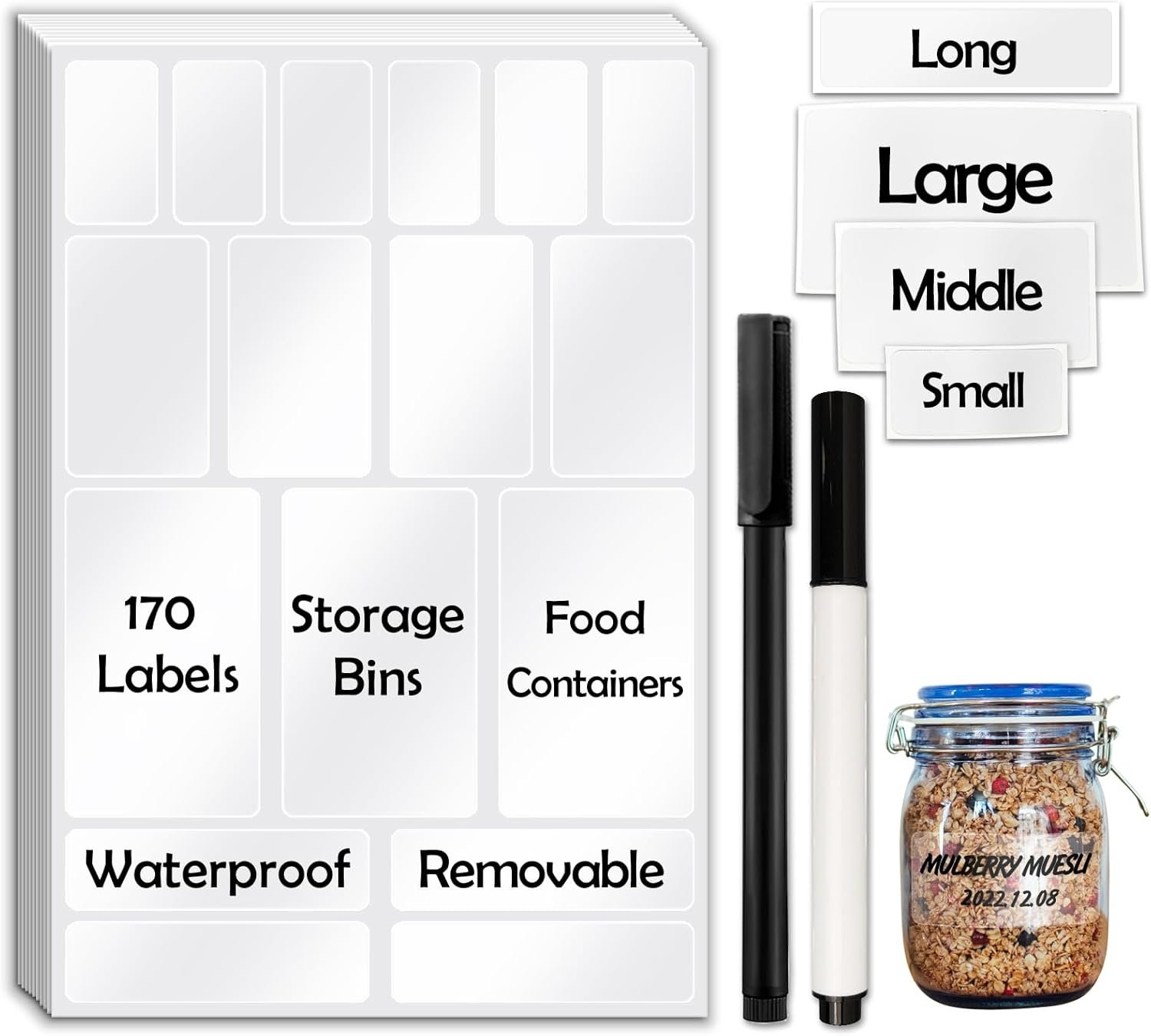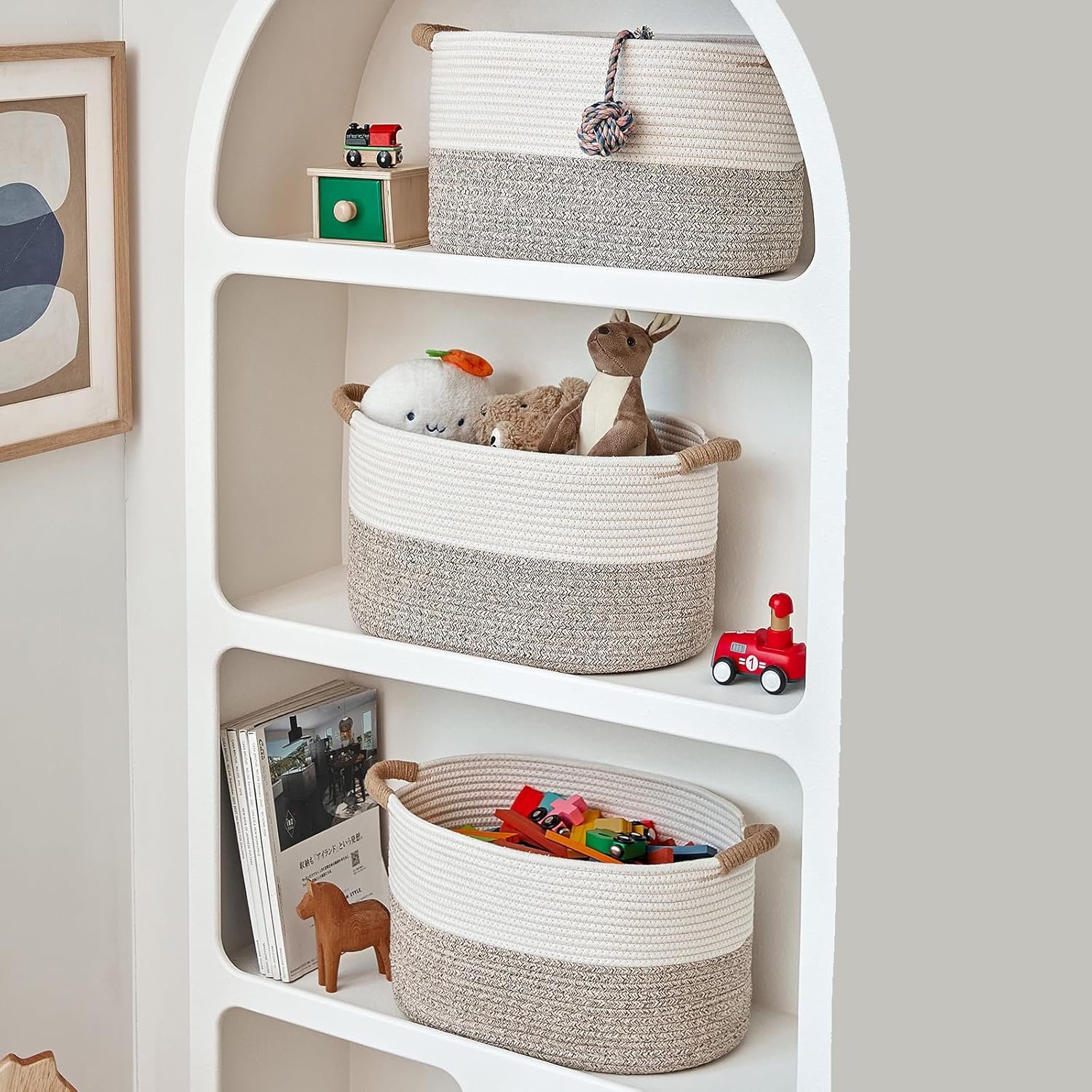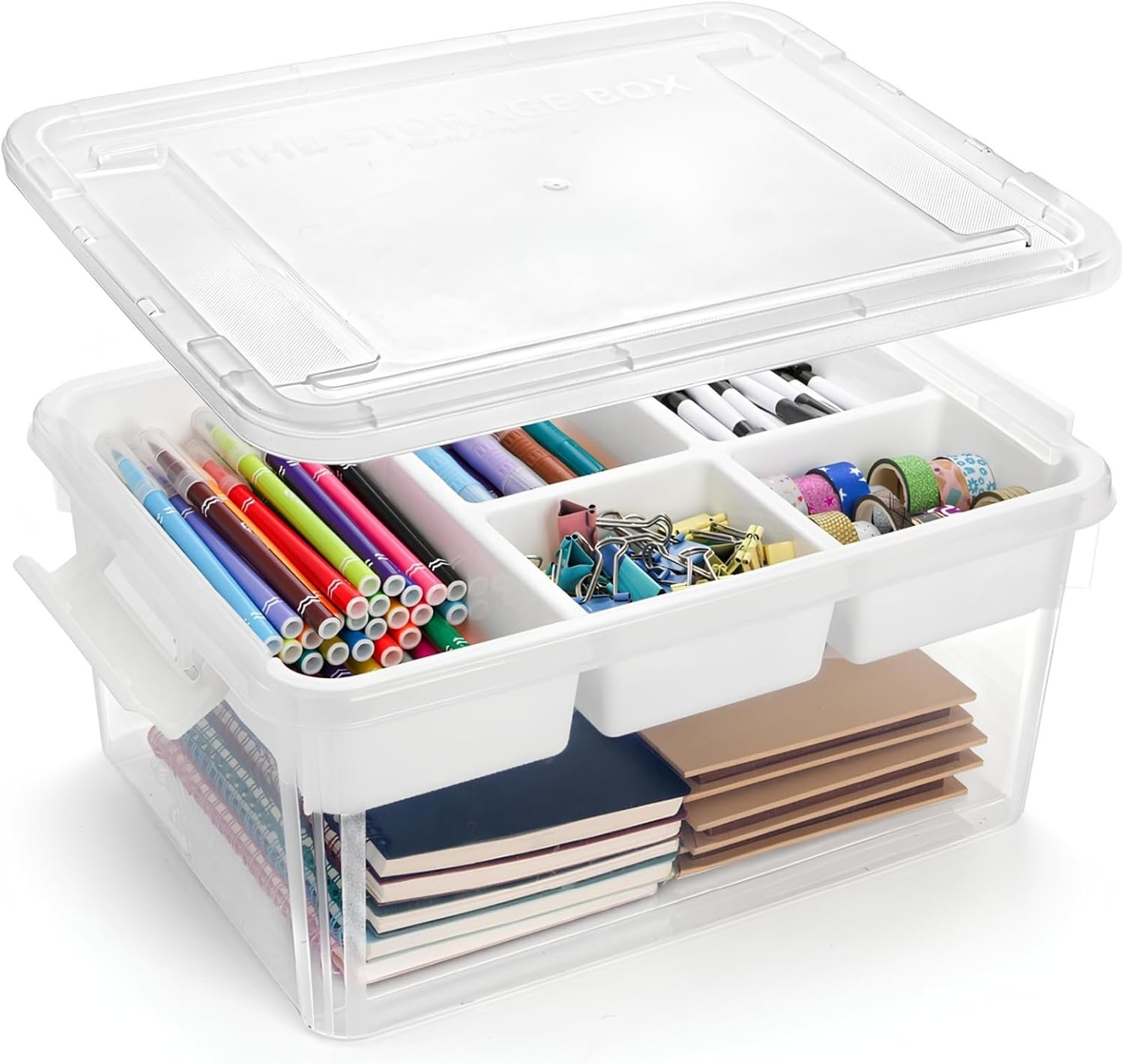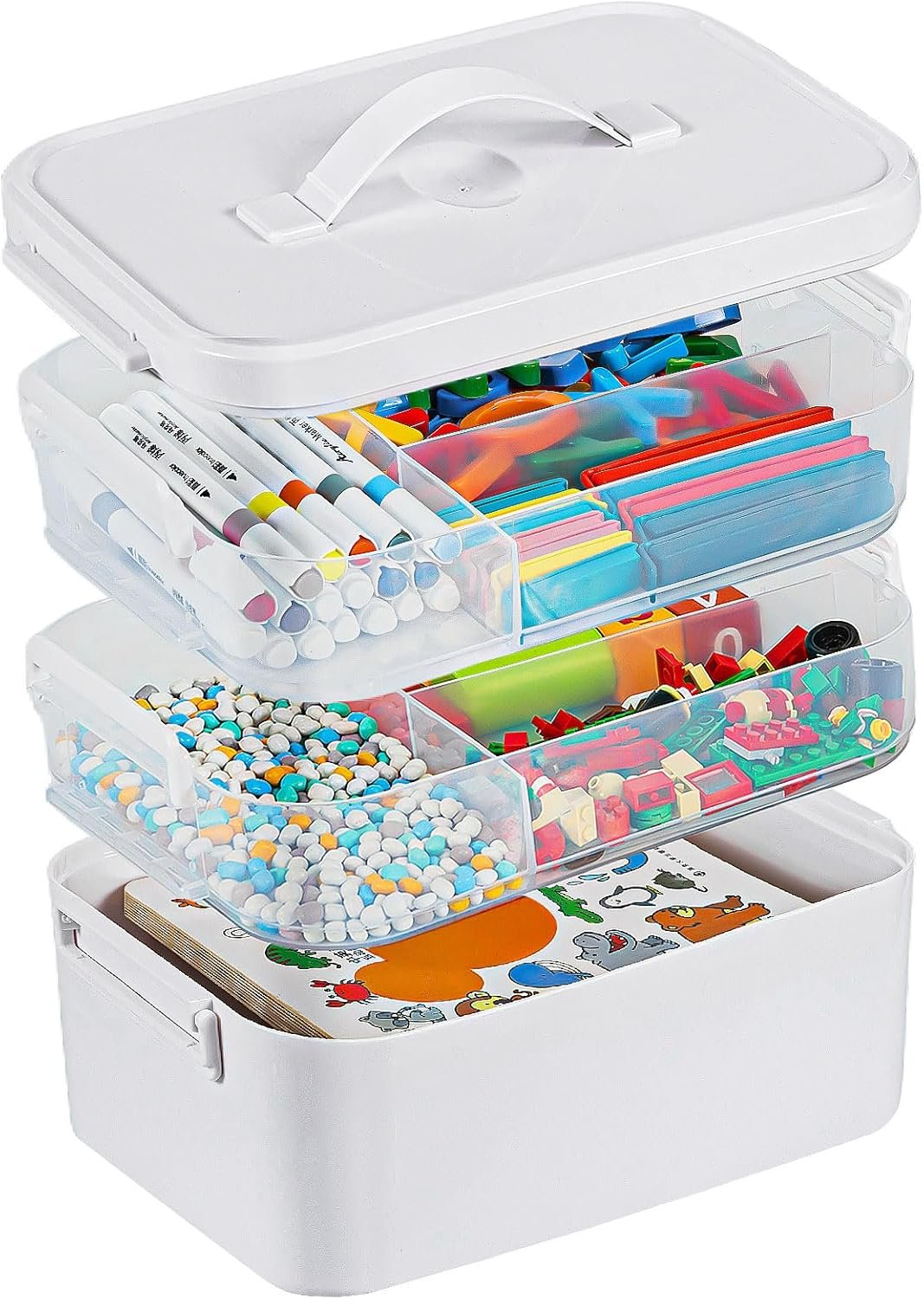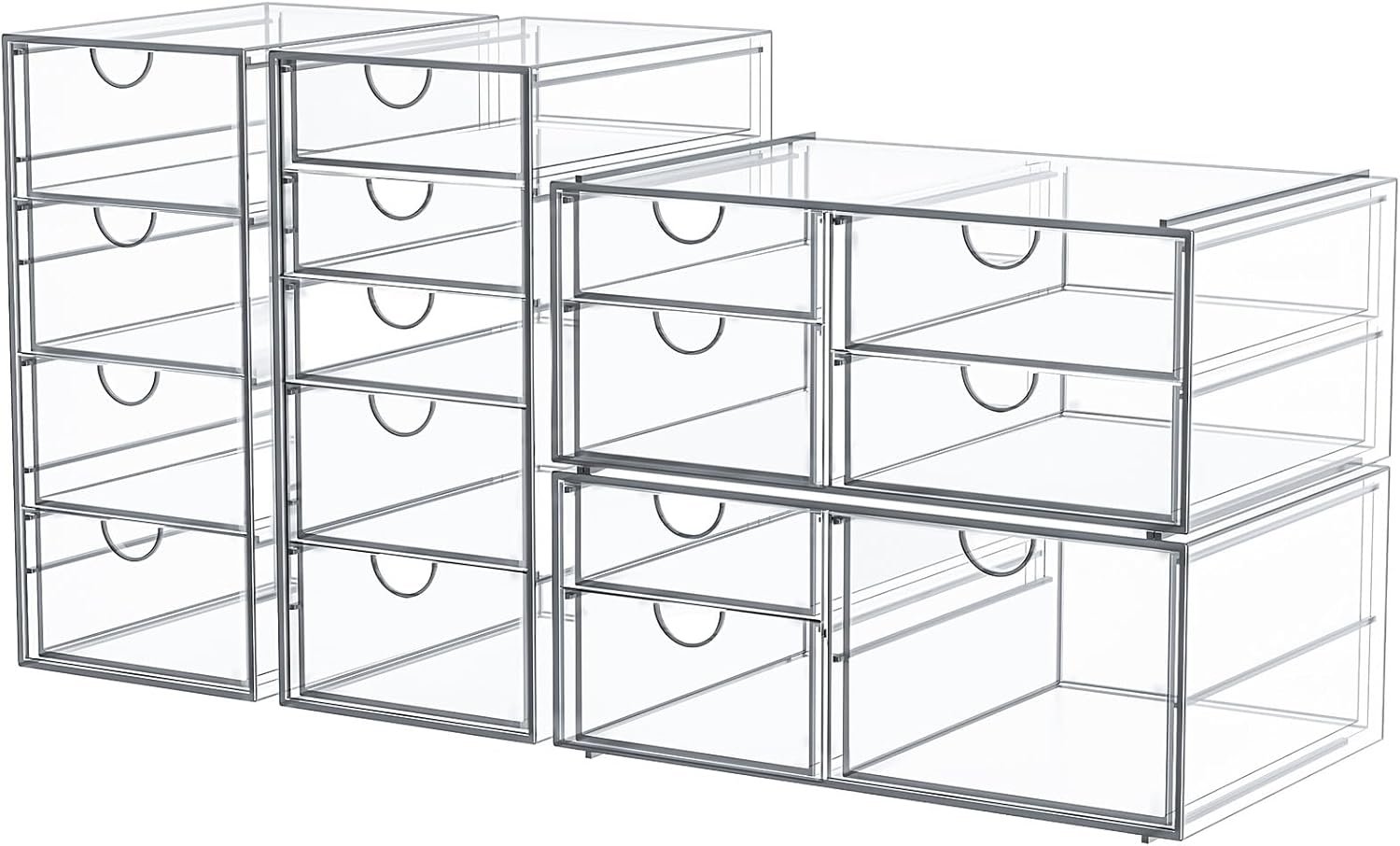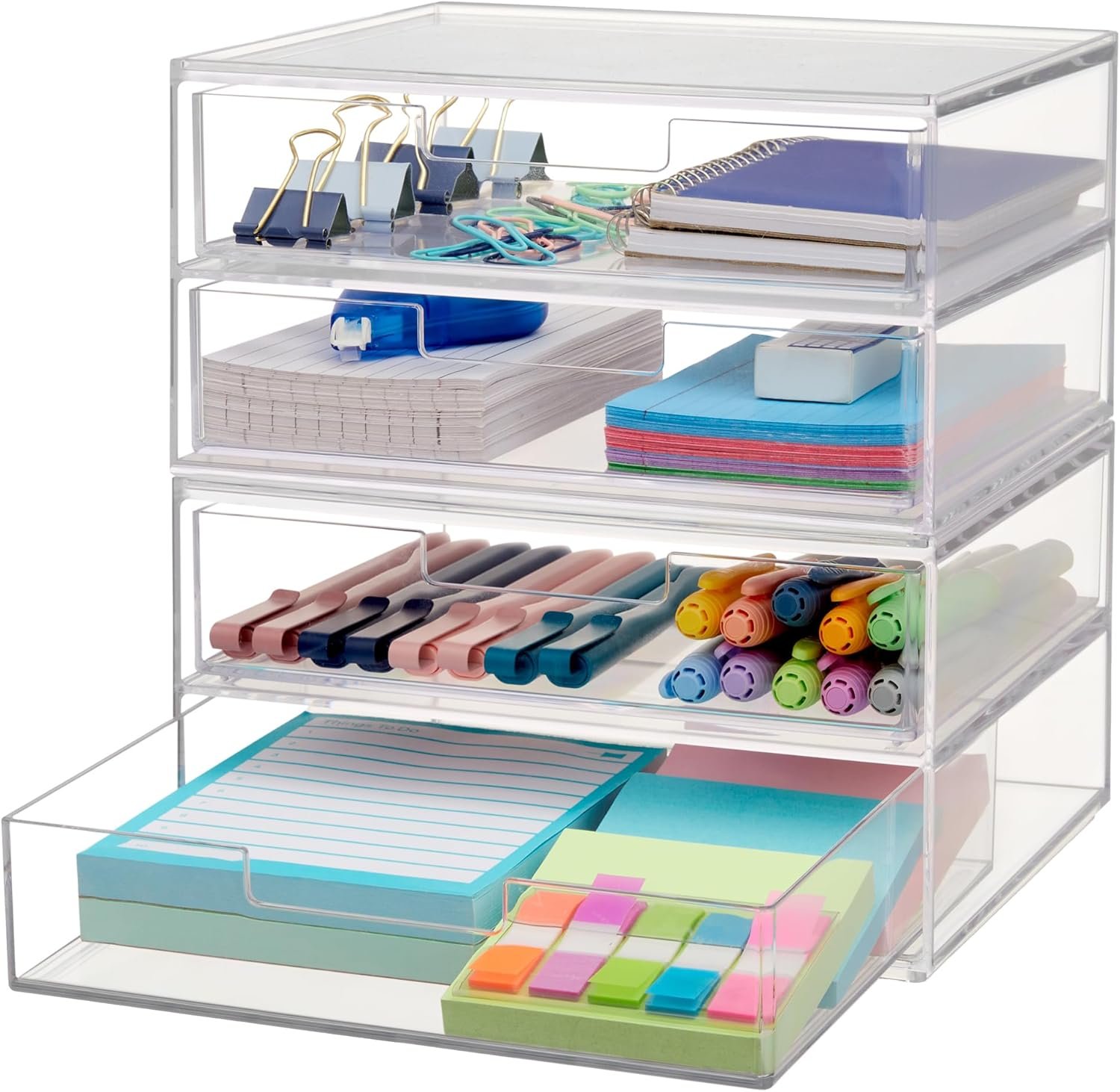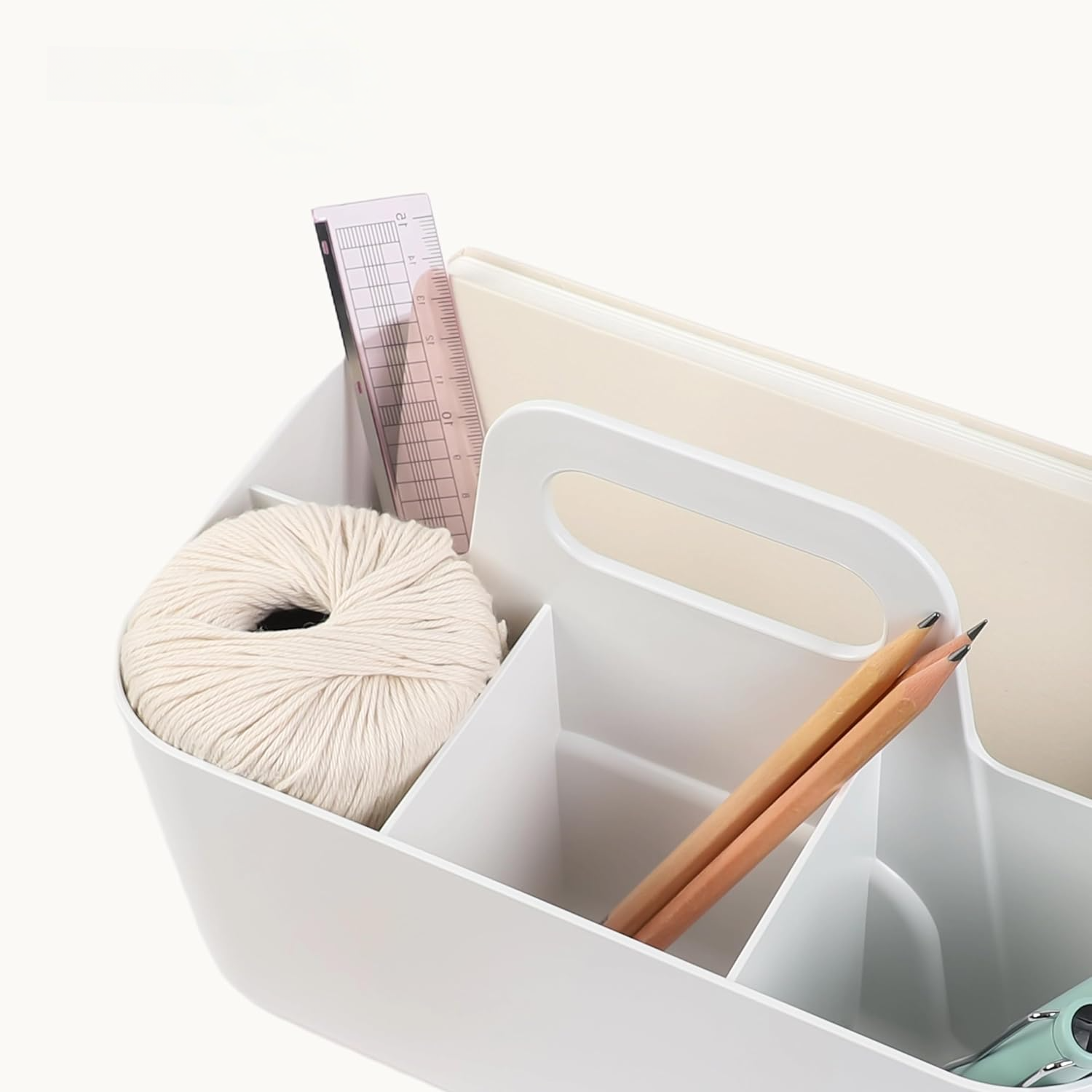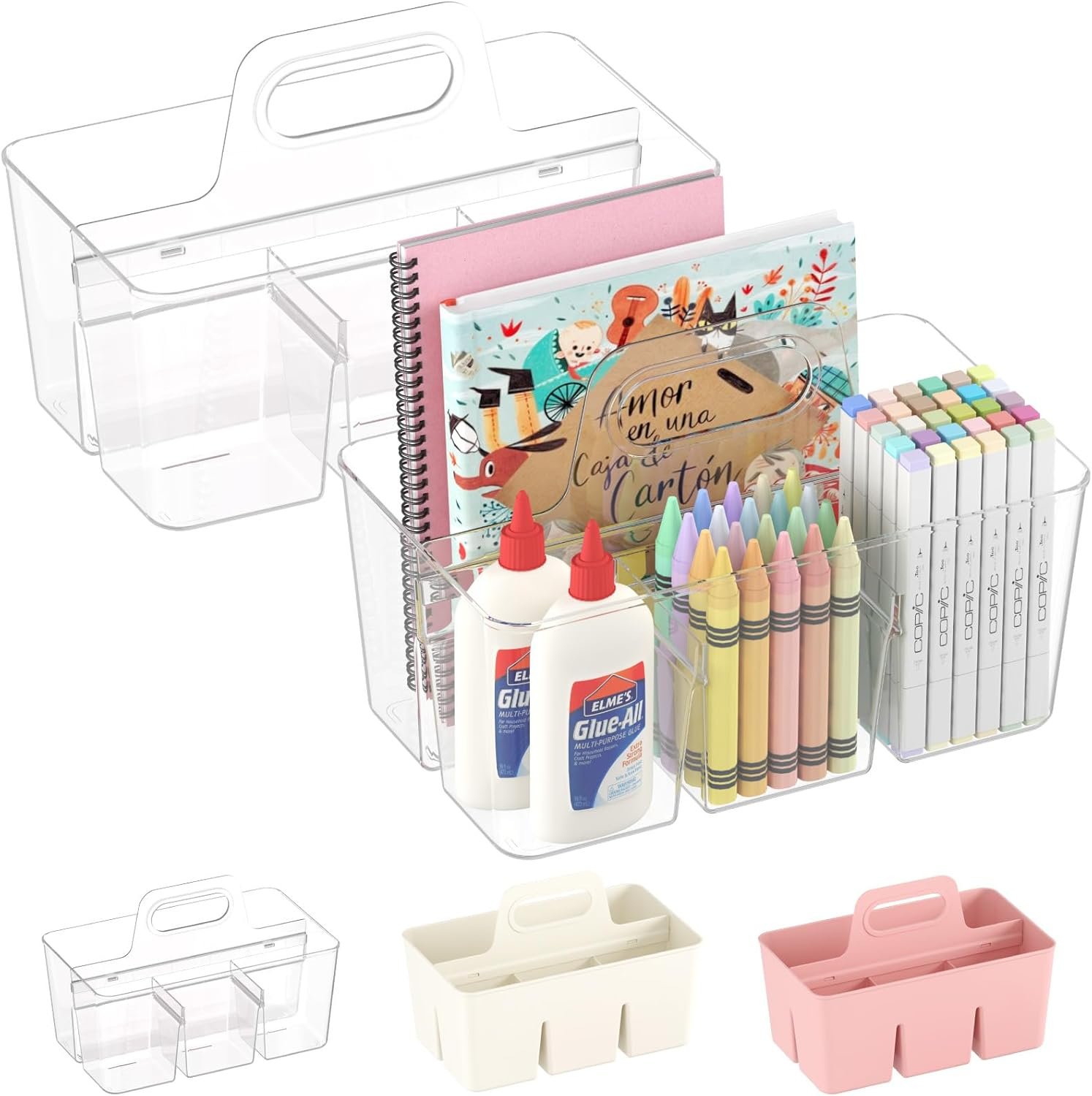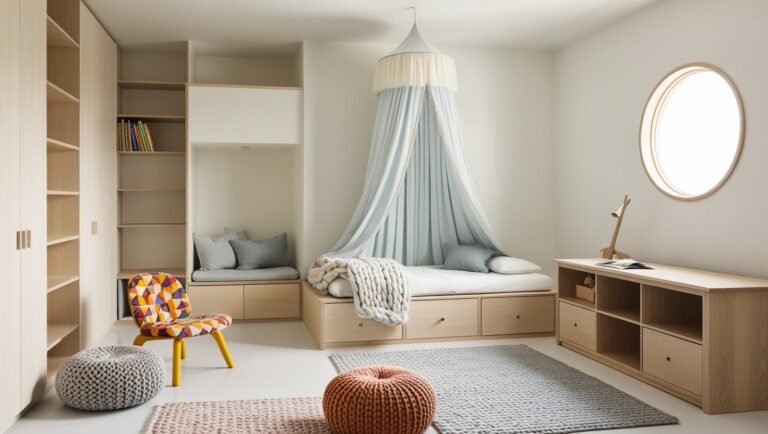Easy Organization Tips for Busy Families
Being a busy parent can be tough. It feels like you’re doing a million things at once. I know how you feel.
But, what if you could make your family life simpler? You can create a peaceful home by using some smart tips and organization solutions. This way, you can handle things better and feel less stressed. I’ve broken it down into manageable steps that actually work in real homes. No Instagram-perfect solutions here – just practical ideas for every families!
There are many ways to make your family life more balanced. You can start with a family command center or share tasks with your family. These strategies can really help.

Key Takeaways
- Simplify your morning routine with a few simple changes
- Create a family command center to stay organized
- Delegate responsibilities to make life more manageable
- Use practical tips to reduce stress and create a harmonious home
- Implement organization solutions to simplify your family life
The Chaos of Family Life and Why Organization Matters
Managing a busy family can feel overwhelming. But, there’s hope for a more organized life. Family life is full of schedules, activities, and responsibilities.
Busy families often face common pain points. These can disrupt the harmony of home life.
Common Pain Points for Busy Families
Managing clutter, coordinating activities, and keeping a clean home are big challenges. These tasks can be hard, with everyone on different schedules.
The Mental Load of Household Management
The mental load of managing a household is often overlooked. It’s not just about doing chores. It’s about remembering, scheduling, and ensuring they’re done on time.
This mental burden can cause stress and anxiety. It affects the well-being of family members.
The Benefits of Getting Organized
By using family organization tips and household management strategies, families can reduce stress and improve productivity. Getting organized leads to a more peaceful home.
Simple organizational systems can make a big difference. Start with small steps, like a family calendar or simplified meal planning. Families can then enjoy the benefits of a more organized home.
Creating a Family Command Center
Having a central spot for your family’s info can make life easier. A family command center is where you find schedules, reminders, and more. It’s key for managing your home’s tasks and keeping everyone on track.
Essential Elements of an Effective Command Center
A good command center needs a few things. First, a family schedule planner or calendar is a must. It helps track everyone’s plans and meetings. You can use a physical calendar or a digital one, based on what your family likes.
Also, a spot for to-do lists, reminders, and important papers is helpful. It keeps your home organized and running smoothly.

Location and Accessibility Considerations
Where you put your command center matters a lot. It should be somewhere everyone walks by, like the kitchen or near the door. Make sure it’s easy for everyone to reach, including kids and seniors.
Essential Items:
- Wall calendar
- Message board
- File organizer
- Menu planning space
- Cleaning schedule
Setup Steps:
- Choose a visible wall space
- Mount your calendar at eye level
- Create zones for different activities
- Set up a simple filing system
- Make a meal planning station

Mom Hack: Take photos of your organized spaces to help family members maintain them!
Digital vs. Physical Command Centers
Families can pick between digital and physical command centers. Digital ones are on phones or tablets, while physical ones are real spaces. Some families use both, mixing digital and physical elements.
Maintaining Your Command Center
Keeping your command center tidy is important. Set times to check and update your family’s plans, lists, and papers. This keeps it useful for time management for parents and the whole family.
Mastering the Family Calendar System
An organized family calendar is more than just a tool. It’s a decluttering solution that brings order to your daily life. By using an effective calendar system, you can reduce the chaos of managing multiple family members’ schedules.

Choosing the Right Calendar Format for Your Family
The first step is to decide on a calendar format. You can pick digital calendars like Google Calendar or physical ones like a wall calendar. Choose a format that everyone in the family likes.
Color-Coding Strategies That Work
Color-coding is a simple yet effective way to show who’s schedule is whose. Assign a specific color to each person. This way, you can quickly see who has what commitment on any day.
Syncing Multiple Schedules Seamlessly
To avoid conflicts and overlaps, syncing all family members’ schedules is key. Digital calendars are great for this. They let you share and update schedules in real-time easily.
Planning for Special Events and School Breaks
A well-managed calendar also helps plan for special events and school breaks. Mark these dates in advance. This way, you can prepare your family and avoid last-minute scrambles.

By following these strategies, you can create a family calendar system. It keeps everyone on the same page and makes your home more organized. This leads to a more harmonious and less stressful living environment.
Entryway Solutions ‘Drop Zone’
Begin your journey right at the point where the chaos often starts – that is, your entryway! This area serves as the initial stage for the disarray that can accumulate in your home.
Game Changer: Eliminates chaos at the door and saves time finding essentials!
What You’ll Need:
Wall hooks at kid height
Shoe storage bench
Key hook system
Mail sorting station (Basket / Box)
Storage baskets
Tray for keys and wallets
Implementation:
Install hooks at appropriate heights for each family member
Set up a shoe bench with cubbies
Create a charging station for devices
Establish a mail sorting system
Label everything clearly
Choose a high-traffic area near the door.
Install hooks and place a basket.
Add a small table and decorative tray for smaller items.
Style with a plant or small decor.

Quick Win: Use different colored hooks or baskets for each family member!
Morning and Evening Routines That Save Sanity
Efficient morning and evening routines can make family life less chaotic. A structured routine brings calm and normalcy, even on busy days.
Creating Stress-Free Morning Launches
A calm morning starts with planning. Prepare everything the night before, like clothes, lunches, and backpacks. This big step cuts down morning stress.
Evening Reset Rituals That Prepare for Tomorrow
Evening routines are as important as morning ones. Start with a calming pre bedtime routine, like reading or meditation. It signals the day’s end.
Age-Appropriate Routine Charts for Kids
Age appropriate routine charts help kids feel responsible and independent. Make charts fit the child’s age and skills, keeping them simple and clear.

Handling Routine Disruptions
Routines can get disrupted. Be flexible and adjust as needed. Talk to family members to change the routine together, keeping everyone in sync.
Using these tips daily can make your home more organized and peaceful.
Meal Planning and Prep for Busy Weeks
Being a busy parent means meal planning and prep are key to less stress. With a good plan, your family can enjoy healthy meals, even on chaotic days.
Save time, reduce stress, and keep your family well-fed with an organized meal plan.
Benefits for Busy Moms:
Cuts down daily decision fatigue.
Reduces last-minute grocery store trips.
Helps stick to a budget by avoiding impulse buys.
Encourages healthier, balanced meals for the family.
Setup Steps:
Set aside 15–20 minutes weekly to plan meals.
List recipes and organize by breakfast, lunch, and dinner.
Check your pantry and create a grocery list.
Prep ingredients or meals in advance where possible.

Mom Tips: Include family favorites to avoid complaints 😉
Simplifying Meal Planning
One top organization solution for busy families is to make meal planning simple. Create a system that fits your family’s life. Plan meals for busy nights and save the fancy ones for when you have time.
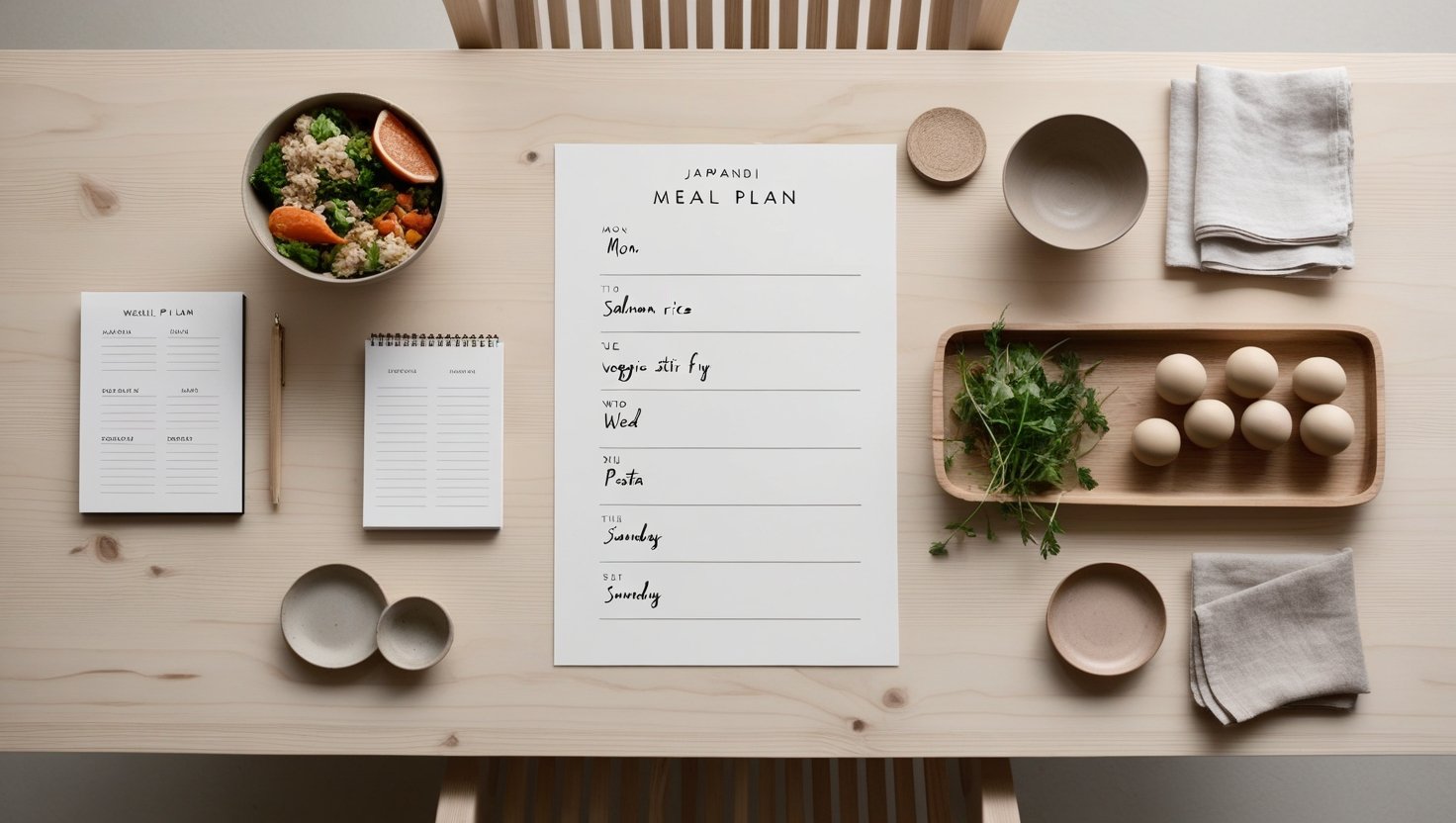
Grocery Shopping Optimization
Smart grocery shopping is key to meal planning. Make a list and stick to it to avoid buying things you don’t need. Look for sales and buy in bulk to save. Digital coupons and apps can make shopping easier.
Involving Kids in Meal Prep
Getting your kids involved in cooking teaches them skills and responsibility. Give them tasks like washing veggies or mixing. It makes meal prep fun for everyone.
By using these meal planning tips, busy families can eat healthier, feel less stressed, and spend more time together. It’s about finding a system that works and sticking to it.
Batch Cooking and Freezer Meals

Batch cooking and freezer meals are a big help on busy days. Cooking a lot at once lets you freeze meals for later. This saves time, cuts down on waste, and saves money too.
Organization Solutions: Conquering Household Clutter
Clutter can quickly overwhelm a household. But, with the right approaches, families can create a more peaceful living environment. Household clutter is not just about looks. It can also affect how well a home works and the well being of its people. Effective household management strategies are key for busy families to declutter and organize their homes.
Room-by-Room Organization Approaches
Tackling clutter needs a systematic approach, starting with a room by room analysis. Start by finding areas that need the most help. Then, make a plan to organize each space. For example, the kitchen might need organized cabinets and pantry. The living room might need better toy storage and media management.
By breaking down the task into smaller, manageable chunks, families can make big progress in reducing clutter.
Kid-Friendly Storage Solutions
Managing children’s belongings is a big challenge in keeping a clutter free home. Using kid friendly storage solutions can help kids keep their toys and belongings organized. This can include labeled bins, accessible shelving, and designated play areas.

By making organization easy and fun, kids are more likely to keep their spaces tidy.
Must-Haves:
- Picture labels for young kids
- Easy-access containers
- Rotation system for toys
- Art supply organization
- Homework station
Implementation Steps:
Sort toys by category
Create zones for different activities
Set up easy-to-use storage
Make clean-up fun with games
Teach basic organization skills

Game Changer: The “one in, one out” rule for new toys
Utilize Clear Storage Bins
Simplify organization with see-through bins for easy access and visibility, making tidying enjoyable for children for little ones.
Essential Items:
- Stackable clear bins
- Labels or tags
- Shelving unit or closet space
- Lids to keep items dust-free.
Setup Steps:
- Sort items by category (e.g., seasonal, toys).
- Place items in appropriately sized bins.
- Add clear labels for quick identification.
- Arrange bins on shelves or in a closet for accessibility.
Use Smart Storage Solutions
Maximize every inch of space with clever storage solutions. Think vertical storage, under-the-bed organizers, and multi-functional furniture.
Recommended Products:
- Over-the-Door Organizers: Great for shoes, toys, or cleaning supplies.
- Under-Bed Storage Bins: Keep seasonal clothes or extra bedding neatly tucked away.

Pro Tip: Use furniture with built-in storage, like ottomans or beds with drawers, to keep clutter hidden yet accessible.
Living Room Systems
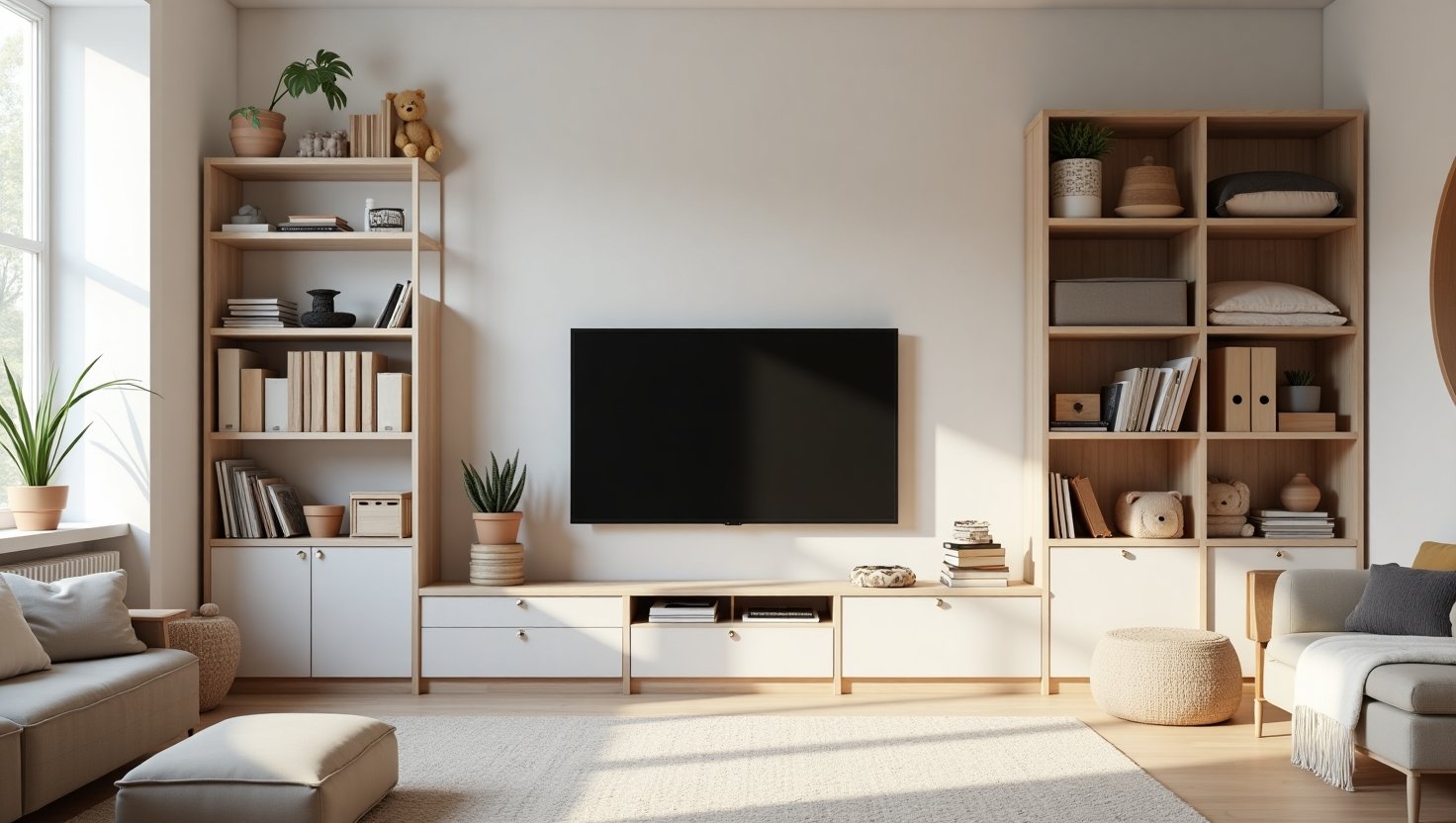
Create order in your most-used space.
Key Components:
Toy storage solutions
Media organization
Blanket storage
Magazine/book control
Remote control station
Organization Process:
Assess your main trouble spots
Invest in attractive storage bins
Create designated spaces for everyday items
Implement a daily reset routine
Label containers clearly

Real Talk: Choose storage that’s easy for kids to use independently!
Bathroom Organization
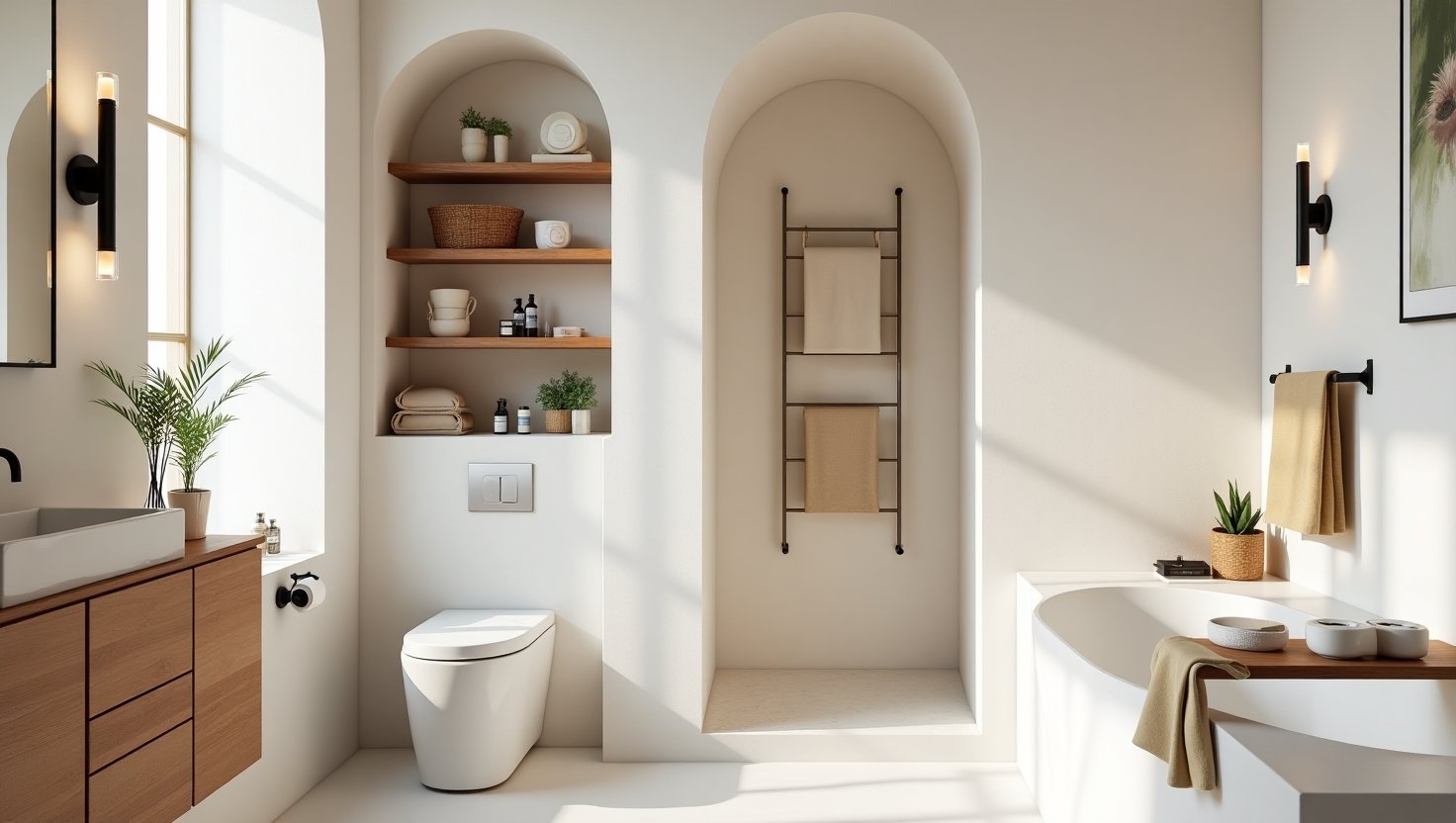
Streamline your morning routine.
Essential Items:
Under-sink organizers
Over-toilet storage
Shower caddies
Towel systems
Medicine organization
Organization Process:
Clear out expired items
Group similar items together
Set up morning routine stations
Create grab-and-go solutions
Implement a weekly reset

Safety First: Keep cleaning supplies and medicines out of reach!
Seasonal Rotation Systems
A seasonal rotation system can be an effective way to manage clutter and keep the home feeling fresh. This involves storing out of season items and rotating them as the seasons change. For example, winter clothing and holiday decorations can be stored away during the summer months.
This makes room for summer toys and gear. This approach not only reduces clutter but also makes it easier to find what you need when you need it.
Maintaining Systems Once Established
The final step in conquering household clutter is maintaining the systems you’ve established. This requires ongoing effort and commitment from all family members. Regularly scheduled tidying sessions, along with a routine of putting things back in their designated place, can help keep clutter at bay.
By incorporating these habits into your daily routine, you can enjoy a more organized, peaceful living environment.
By implementing these decluttering solutions and maintaining your newly organized spaces, you can significantly reduce the stress associated with household clutter. Remember, the goal is not perfection but creating a home that feels comfortable and manageable for your family.
Delegating Responsibilities: Family Teamwork
Delegating tasks in the family is key to a tidy home. By sharing duties, everyone works together. This makes your home a happier place.

Age-Appropriate Chore Systems
It’s important to have chores that fit each child’s age. Young kids can start with simple tasks like picking up toys. Older kids can do more, like cooking or planning their day.
Teenagers can use a chore chart to keep track of their tasks. Assigning them specific duties helps them learn and prepares them for life on their own.
Consistency is key to maintaining an organized home. Set aside 10-15 minutes daily for tidying up and involve the whole family in the process.
Examples:
Encourage kids to put toys away after playtime.
Do a quick nightly sweep of common areas to reset for the next day.

Pro Tip: Make tidying fun by turning it into a game or using timers.
Creating Accountability Without Nagging
To keep things positive, set clear rules and talk openly. Family meetings help everyone share how they’re doing and make changes if needed.
A family task management system helps keep track of who does what. It can be a whiteboard, a digital calendar, or an app. Just pick something everyone can use.
Reward Systems That Actually Work
Rewards can motivate family members to do their chores. Use both quick rewards and bigger ones for weekly tasks. This keeps everyone excited to help out.
Let your family help pick the rewards. This way, they feel included and the rewards mean something to them. Make it fun and fair, and always thank them for their hard work.
Partner Coordination and Division of Labor
Working well together is important for a happy home. Talk about who does what based on your strengths and likes. Change it up if needed to keep things fair.
Use a shared calendar or list to stay in sync. This helps avoid fights and makes managing the house easier.
Managing Kids’ Activities, Schoolwork, and Paperwork
Managing your kids’ activities, schoolwork, and paperwork can be tough. But, there are ways to make it easier. A few simple systems can help reduce stress and make your family’s routine more manageable.
Activity Selection: Quality Over Quantity
Choosing the right activities for your kids is key. Focus on activities that match your family’s values and priorities. This helps avoid too much on their plates and lets them shine in their passions.
When picking activities, think about time management for parents. Make sure there’s a good balance for everyone.
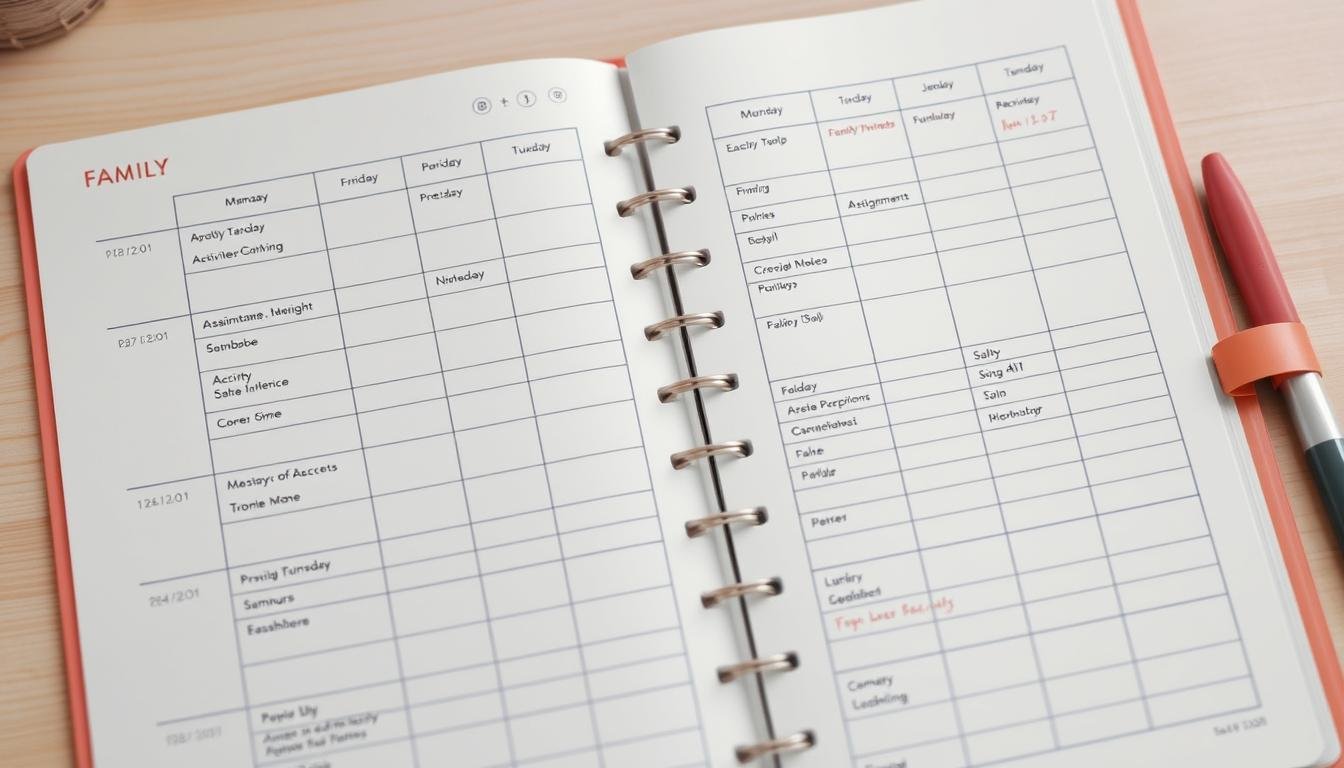
Homework Stations and Supply Management
Create a dedicated, clutter-free space to boost focus and productivity. A dedicated homework station enhances your child’s focus. Keep it organized with necessary supplies nearby to aid time management for parents and teach kids the importance of a dedicated space. Establish a tidy area to improve concentration and productivity.
Essential Items:
Desk or table with enough surface space.
Comfortable chair with proper support.
Storage solutions (bins, trays, or drawers).
Essential supplies (notebooks, pens, tech chargers).
Setup Steps:
Choose a quiet, well-lit spot.
Arrange supplies in labeled organizers or bins.
Add a comfortable chair and proper lighting.
Keep distractions to a minimum with clear desk rules.

Game Changer: Transforms chaotic homework time into an organized, stress-free routine.
Assign specific areas for activities like homework, meal prep, or playtime. Label shelves, drawers, or bins to make it clear where everything belongs.
Example:
- Use a labeled basket for kids’ school supplies.
- Create a “grab-and-go” station for essentials like keys and wallets near the entrance.
Recommended Products:
- Clear Removable Labels: Perfect for customizing storage solutions.
Paper Flow Systems for School Documents
Keeping school documents organized can be hard. Use a paper flow system, digital or physical, to manage them. A family schedule planner can help track important school dates and deadlines.
Managing Sports Equipment and Activity Gear
Sports equipment and gear can clutter your home. Pick a spot for storing it and teach your kids to keep it tidy. Regular cleaning and organization make it easier to find what you need for the next activity.
By using these strategies, you can make managing your kids’ activities, schoolwork, and paperwork easier. This leads to a more organized and less stressful family life.
Shop the Post
FAQ
What is a family command center, and how can it help my family stay organized?
A family command center is a place where everyone can find important info. It helps keep everyone in sync. It’s a key spot for family schedules and reminders.
How do I choose the right calendar format for my family’s needs?
Think about your family’s lifestyle and what you like. You might choose a digital or physical calendar. Look for features like color-coding and reminders.
What are some effective strategies for managing household clutter?
Start by organizing one room at a time. Use storage that kids can use. Rotate items seasonally to keep things fresh.Don’t forget to clean regularly. This stops clutter from coming back.
How can I delegate responsibilities to my family members effectively?
Make chores fit each family member’s age. Don’t nag, but make sure they know what to do. Use rewards to motivate them.Work together to divide tasks fairly. This way, everyone helps out.
What are some tips for managing kids’ activities, schoolwork, and paperwork?
Choose activities wisely and set up homework stations. Use systems to keep paperwork in order. This helps manage sports gear too.
How can meal planning and prep help simplify my busy family routine?
Meal planning saves time and reduces stress. It helps you eat healthier. Use batch cooking and freezer meals for quick meals.Shopping smart can also save money and reduce waste.
What are some strategies for maintaining morning and evening routines?
Make mornings easy and create evening rituals. Use charts for kids to follow routines. This helps even on busy days.
The Bottom Line
Small Steps to a More Organized Family Life
Remember, getting organized isn’t about achieving perfection – it’s about creating systems that make your daily life easier. Start with small changes, build consistent habits, and celebrate your progress along the way. The best organization system is one that your whole family can maintain without stress. Focus on progress over perfection, and you’ll be amazed at how much calmer your home feels when everything has its place!Remember, getting organized isn’t about achieving perfection – it’s about creating systems that make your daily life easier. Start with small changes, build consistent habits, and celebrate your progress along the way. The best organization system is one that your whole family can maintain without stress. Focus on progress over perfection, and you’ll be amazed at how much calmer your home feels when everything has its place!

ABOUT the AUTHOR
TOKI; INTERIOR DESIGN & lifestyle CONTENT CREATOR.
Hey there! I’m Toki—the design-obsessed brain behind Dwell Studio 24. I’m a content creator passionate about interior design, photography, and creativity, living in a 77-year-old house with my husband and our awesome three kids. I write about interior design, furniture, home topics, and my lifestyle, including travel, recipes, skincare, and daily routines. I hope to inspire your next project and lifestyle!
ABOUT the AUTHOR
TOKI; INTERIOR DESIGN & lifestyle CONTENT CREATOR.

Hey there! I’m Toki—the design-obsessed brain behind Dwell Studio 24. I’m a content creator passionate about interior design, photography, and creativity, living in a 77-year-old house with my husband and our awesome three kids. I write about interior design, furniture, home topics, and my lifestyle, including travel, recipes, skincare, and daily routines. I hope to inspire your next project and lifestyle!
ABOUT the AUTHOR
TOKI; INTERIOR DESIGN & lifestyle CONTENT CREATOR.

Hey there! I’m Toki—the design-obsessed brain behind Dwell Studio 24. I write about interior design, furniture, home topics, and my lifestyle, including travel, recipes, skincare, and daily routines. I hope to inspire your next project and lifestyle!


